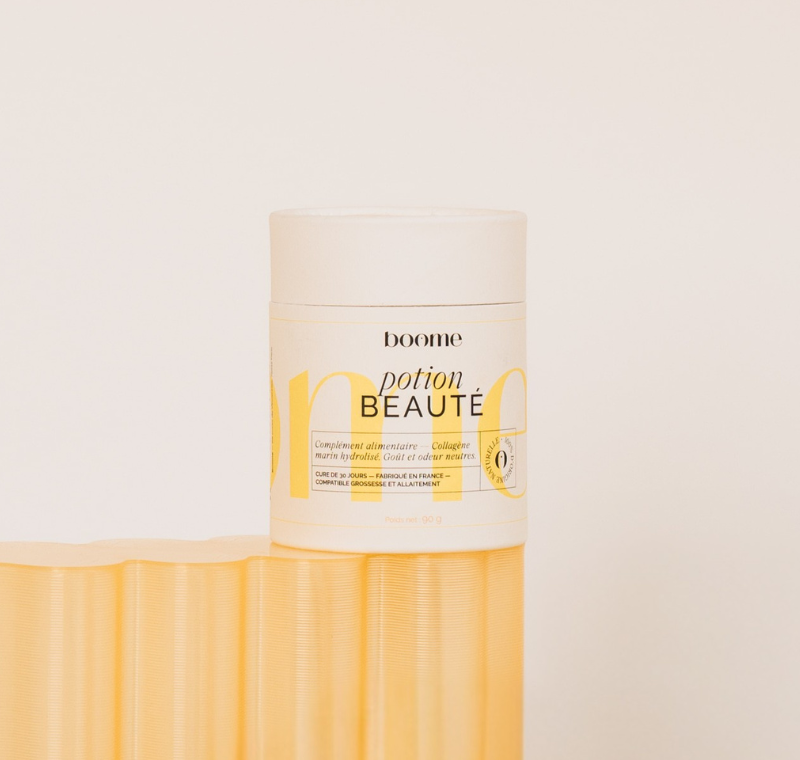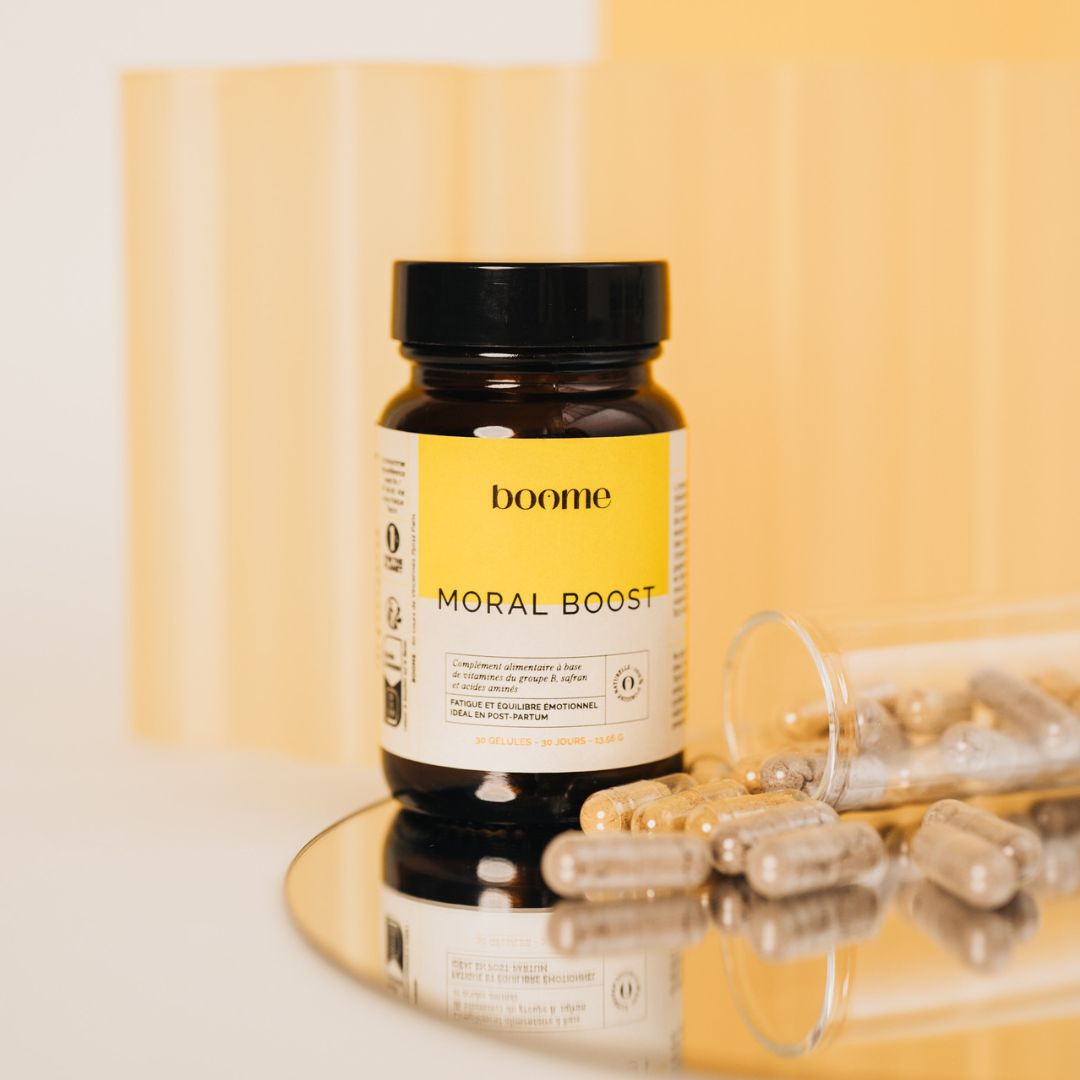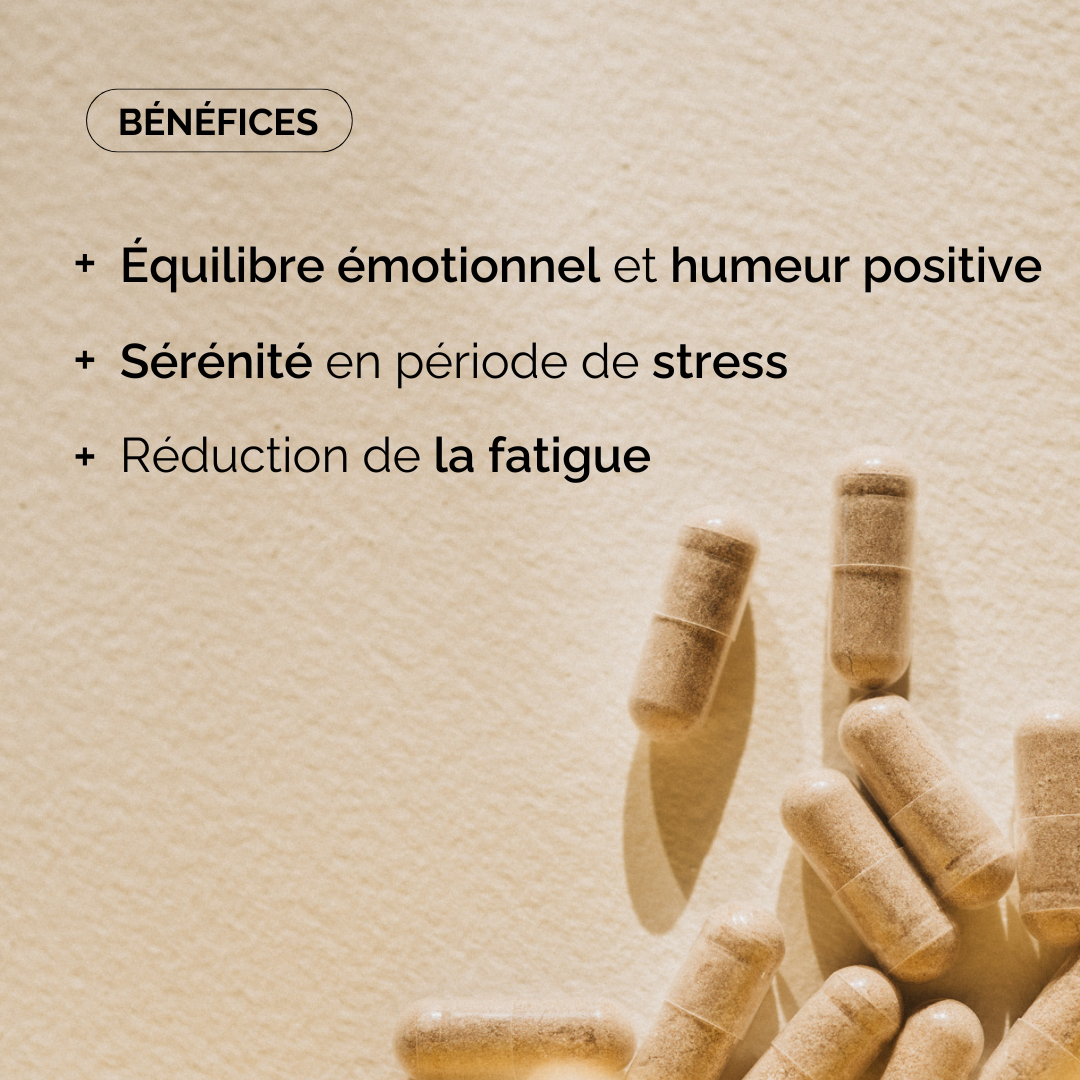
Collagen: it's a buzzword! But do you really know its functions and little secrets? This important protein in our bodies affects our bodies on many levels every day, and even more so after giving birth. Ready to become uncolla(gene)bles?
Oh collagen, precious protein
Still little known a few years ago, collagen is now in the spotlight, and for good reason, its benefits are numerous and varied. A protein naturally present - and in abundance! - in the human body, collagen is found in our bones, teeth, cartilage, cornea, skin... It is what mainly makes up the dermis. If we tell you that its origin "kolla" is Greek and means "glue", you will certainly better visualize how it works: it allows the cohesion of tissues, cells and organs, by acting like a... glue. It is a precious binder that ensures flexibility, resistance, and hydration of our body structures.
By making tissues more resistant and providing elasticity, collagen is certainly important for the good health and beauty of the skin, but it doesn't stop there: it regenerates cells more quickly, protects the intestinal wall, stimulates the growth of muscle fibers, reduces certain joint pains and slows down osteoporosis and skin aging. While it is produced by our body and renews itself throughout our lives, we produce less of it as we leave our younger years (the very years when we woke up fresh as a dew after having slept 4 hours, #RIP). After 30, it is estimated that we produce on average 1% less per year (get your calculators out, ladies) and that its quality declines. Smoking, exposure to the sun and/or pollution can also accelerate its degradation. The consequence? We lose elasticity and tone in the skin tissues.
What are the best sources of collagen?
We can't stress it enough: your plates are the primary source of your energy and well-being on a daily basis! But due to lack of time, we know that we can't always fill them as perfectly as we should. To provide your body with collagen, turn to animal proteins (it only comes from animals). Pork, beef, fish, and chicken (and even with the skin for these two, it's very rich in collagen), devour! One of the recipes that can boost you is chicken broth. Low in calories, it's a powerful remineralizer and a concentrate of collagen. Since there are no plant sources of collagen, don't hesitate to ensure a sufficient dose of collagen by supplementing if you are vegetarian or eat little meat.
What are the benefits of the 3 types of collagen?
There are 29 types of collagen ! They obviously differ depending on their structure and function. The most important are types 1, 2, and 3: types 1 and 3 are located in the dermis and contribute to youthful skin. Here's a quick recap of their specificities:
- Type 1 collagen: This is the most abundant collagen in the body and is found in skin, bone tissue, ligaments, and tendons. While it helps form bones, it also plays a role in proper wound healing, skin elasticity (essential for a pregnant woman's body), and the maintenance of connective tissue.
- Type 2 collagen: Found in cartilage, it serves as a nutrient. It is responsible for the efficient functioning of joints.
- Collagen type 3: this is found in muscles and the walls of blood vessels.
Collagen and postpartum: the perfect duo
Not only does it improve the beauty of your skin (we know that sleepless nights don't mean a fresh complexion) and your hair (hair loss is very common during this period), collagen also activates healing and can therefore also play a role in the appearance of stretch marks. For all these reasons, it is therefore more than welcome in the postpartum period, when the body tries to recover from the "shock" of childbirth.
Can you take collagen while breastfeeding?
Good news: yes, you can take collagen while breastfeeding (and even while pregnant)! Collagen has no known impact on milk production. You can take a postpartum collagen treatment without any problem.
What are the benefits of collagen postpartum?
After giving birth, your body goes through a lot of changes. And so, it needs plenty of nutrients to recover. That's where our favorite natural protein comes in! Because collagen for skin can:
- Regenerate and heal : Whether after a vaginal birth or a cesarean section, collagen helps with the tissue healing process and the reduction of stretch marks. It also allows the skin to remain hydrated and firm, despite the damage caused by hormonal changes.
- Improve elasticity and firmness : stomach, breasts, other weakened areas of the body... After pregnancy, the skin on the body can lose elasticity. However, collagen is fantastic for strengthening the structure of the dermis! It helps restore beautiful, firm, more toned and supple skin.
- Protect against skin aging : By taking a collagen supplement , you will stimulate its natural production. This can help slow the appearance of fine lines and prevent postpartum skin dryness.
- Support connective tissues : By intervening in the repair of weakened tissues, collagen helps the skin regain its initial appearance after the stretching caused by pregnancy.
But that's not all! Because collagen also works wonders on our fiery mane. Yes, it also boosts hair growth. How? By promoting the production of keratin. The result: it helps fight postpartum hair loss and promotes faster regrowth.
In short, incorporating collagen into your postpartum routine can be a valuable aid in restoring beautiful, glowing, and healthy skin. Even after giving birth. Not bad, right?
Are you familiar with marine collagen? We'll tell you all about it in our article on the benefits of marine collagen !
Collagen and postpartum: are there any precautions to take?
Even though collagen is a natural protein, and therefore often well-tolerated, it is still recommended that you take certain precautions, especially postpartum, for new mothers.
First, choose quality collagen! It should always come from certified marine or bovine sources. Of course, avoid controversial additives (like sweeteners or artificial flavors). Opt for clean formulas, especially those that also contain vitamin C. This allows for optimal absorption of collagen by the body.
Next, you are advised to avoid supplements that contain substances whose safety for the baby is not guaranteed. For example, certain forms of collagen peptides enriched with specific amino acids.
It should also be remembered that collagen does not replace your prescription supplements, such as iron, folic acid or vitamin D.
Last but not least, make your collagen intake part of a healthy lifestyle. Collagen alone isn't enough for a good postpartum recovery. So, try to eat a diet rich in protein, essential fatty acids, and vitamins. On the menu:
- red fruits;
- kiwi;
- dairy products;
- oilseeds;
- eggs;
- of the lawyer.
In addition to these foods rich in good things, also remember to hydrate yourself well: 1.5 to 2 L of water per day at least!
Finally, prioritize restorative sleep (as much as possible with a newborn!).
In short, this new daily routine is essential to increase the benefits of collagen postpartum.











